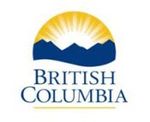About the Settlement Workers Guide to Helping Clients with Legal Information and Legal Referrals Wikibook: Difference between revisions
Drew Jackson (talk | contribs) |
Drew Jackson (talk | contribs) |
||
| Line 17: | Line 17: | ||
==Acknowledgements== | ==Acknowledgements== | ||
[[File:Canadafederalgovernmentlogo.jpg|frameless|link=|150px]] [[File:BCgovernmentlogo.jpg|frameless|link=|150px]] The Immigrant PLEI Consortium (IPC) acknowledges the financial contribution of the Government of Canada and Province of British Columbia to this project. | [[File:Canadafederalgovernmentlogo.jpg|frameless|left|link=|150px]] [[File:BCgovernmentlogo.jpg|frameless|left|link=|150px]] The Immigrant PLEI Consortium (IPC) acknowledges the financial contribution of the Government of Canada and Province of British Columbia to this project. | ||
The partners would like to acknowledge work done by others that informed this project: | The partners would like to acknowledge work done by others that informed this project: | ||
Revision as of 17:39, 30 March 2014
|
|
This page from JP Boyd on Family Law—and other pages from this Wikibook that discuss BC family law litigation topics—are under editorial review to provide more thorough, current, and practical guidance. Since 2020, procedures, forms, and laws have changed significantly. While gross inaccuracies have been corrected, some details may still be outdated. These pages were not included in the 2024 print edition, and have been highlighted in orange where they appear in the navigation menu on this website. |
Settlement workers and others working with immigrants are often the first point of contact for people who may not know that the law can help with their problem. Providing legal information and referrals at this early stage can help clients learn about the law, the legal system and where they can go for more help. This "how to" guide for settlement workers and others working with immigrants in BC covers how to identify when a client may have a legal issue, how to find legal information and help, and how to make effective legal referrals.
There are four ways to access the information in this guide. You can watch the videos, read online, download the document onto your device, or print the information. Suggested uses include orientation for new staff or viewing a video in a staff meeting to start discussion.

The Settlement Workers Guide to Helping Clients with Legal Information and Legal Referrals © Immigrant PLEI Consortium (IPC) is, except for the images, licensed under a Creative Commons Attribution-NonCommercial-ShareAlike 2.5 Canada Licence. This licence lets others share, reuse, remix, and build upon the work non-commercially, as long as they credit the copyright holder and license their new creations under the identical terms.
This guide was developed through the collaborative efforts of the Immigrant PLEI Consortium (IPC) and the following agencies:
- Courthouse Libraries BC,
- Justice Education Society,
- Legal Services Society (LSS),
- Options Community Services, and
- People’s Law School.
Acknowledgements


The Immigrant PLEI Consortium (IPC) acknowledges the financial contribution of the Government of Canada and Province of British Columbia to this project.
The partners would like to acknowledge work done by others that informed this project:
- University of New South Wales, Faculty of Law Getting Off the Referral Roundabout: Effective Legal Referral, 2006 Workbook
- UBC, Our Place and the Vancouver Foundation, Legal Services Resource Guide, January 2014
- Legal Services Society's Community Partners Orientation Manual, September 2013
Immigrant PLEI Consortium (IPC)

The Justice Education Society is the lead agency of a consortium of service agencies that use a collaborative model to provide legal education and information to immigrant communities. The project, which involves 12 Lower Mainland organizations, has developed public legal education resources in a number of languages.
| ||||||||||||||||||||

